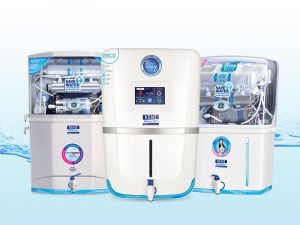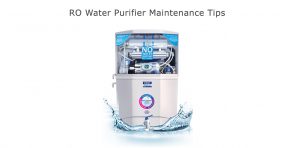All you Need to Know about Arsenic Poisoning and Ways to Prevent it
When a person consumes an excessive amount of arsenic or arsenicosis, it leads to poisoning. The semi-metallic chemical is found in groundwater all over the world. Arsenic poisoning leads to a number of health problems and at times may cause death if not treated at the right time. Considering the risks associated with arsenic poisoning, it is essential to install the best RO water filter for your home which can remove arsenic so that you drink safe and healthy water. In this blog, we discuss in detail the causes, health effects, symptoms, and ways to prevent arsenic poisoning.
What is Arsenic poison
Arsenic poison is a medical condition that occurs when a person is exposed to high levels of arsenic, a toxic chemical element. Arsenic is a naturally occurring element that can be found in soil, water, and air. Exposure to arsenic can happen through various means such as ingestion, inhalation or skin contact.
Causes of Arsenic Poisoning

Consumption of toxic amounts of arsenic is one of the main causes of arsenic poisoning. If consumed in large quantities, it can lead to instant death. If arsenic is consumed in smaller amounts for a longer period of time, it can lead to serious illness. The main reason for arsenic poisoning is drinking groundwater with high arsenic content. Water released by mines also contains arsenic which penetrates the groundwater and makes it dangerous for consumption.
Arsenic in Workplace
Workers of certain industries may face the risk of arsenic poisoning, especially if they don’t take proper safety measures. People working in glass production, wood treatment, production of pesticide manufacturing, and smelting are at a higher risk of arsenic contamination. Agriculturalists who use arsenic to keep off bats, insects, and pests are also exposed to arsenic poisoning.
Also Read: Remove Contaminants from Water with RO+UV/UF Purification System
Symptoms of Arsenic Poisoning
The symptoms of arsenic poisoning can be acute, severe, or immediate depending on the amount of and method of exposure. The symptoms of arsenic poisoning start appearing within 30 minutes if a person swallows large amounts of arsenic in water. The symptoms may include drowsiness, confusion, severe diarrhea, and headaches. Inhaling or consuming arsenic in small amounts may take a longer time to show the symptoms.
Health Effects of Arsenic in Ground Water
Exposure over a brief period causes symptoms such as vomiting, abdominal pain, and bloody diarrhea, and brain disorders. Long-term exposure can result in thickening of the skin, darker skin, abdominal pain, diarrhea, heart disease, and cancer. Even though the arsenic compound, arsphenamine is widely used in modern chemotherapy, the International Journal of Hygiene and Environmental Health reports that arsenic causes cancer.
How to Remove Arsenic from Water
There are several methods to remove arsenic from water. Some of the most common methods are:
- Reverse Osmosis (RO) – RO is a popular method for removing arsenic from water. This process uses a semi-permeable membrane that traps arsenic and other contaminants as water passes through it.
- Activated Alumina – This is a common filtration method that involves using activated alumina to adsorb arsenic from water. It works by attracting and trapping the arsenic as water passes through the filter.
- Ion Exchange – In this method, arsenic ions are exchanged for other ions, such as chloride or sulfate, which are then removed from the water. This process uses specialized resin beads to perform the ion exchange.
- Distillation – Distillation involves heating water to create steam that is then condensed back into water. This process removes arsenic as well as other contaminants that do not evaporate.
- Oxidation-Filtration – This method involves oxidising arsenic to convert it into a form that can be more easily filtered out. The oxidising agent, such as chlorine or ozone, is added to the water and then filtered through a specialised media.
It’s important to note that the effectiveness of each method can vary depending on the level of arsenic present in the water, and the specific water treatment system being used. It’s always recommended to test the water to determine the level of arsenic before selecting a treatment method.
Best Water Filter To Remove Arsenic
When it comes to removing arsenic from your drinking water, nothing beats the efficiency of a Reverse Osmosis (RO) water filtration system. This system employs a unique process that uses pressure to force water through a semi-permeable membrane, effectively removing dissolved pollutants like arsenic. With its unparalleled filtration capabilities, RO is a trusted and reliable method to ensure that your drinking water is free from harmful Arsenic.
Ways to Prevent Arsenic Poisoning

- Test the Water Quality: The first step is to test the water quality in the area where you live. Testing the water quality will let you know whether the water in your area has arsenic contamination. Depending on the quality of water, you can get a water purifier.
- Install a Water purifier that Removes Arsenic: One of the effective ways to reduce arsenic contamination in water is by installing a water purifier. However, ensure that you install an RO water purifier that is efficient in treating drinking water and reducing the arsenic level to make it safe for consumption.
Last Few Words
Drinking water with arsenic pollution can lead to serious health problems. It is alarming to note that arsenic contamination is spreading across the Ganga plains up to Punjab. Many parts of the Ganga-Meghna-Brahmaputra plain are arsenic affected. As a result, it is advisable to get an RO Water purifier that can remove arsenic from water. Renowned brands such as KENT provide water purifiers that remove arsenic and other types of contaminants from water to make it suitable for consumption. If you want to find out more about water purifiers and their benefits for your health, visit our website.





